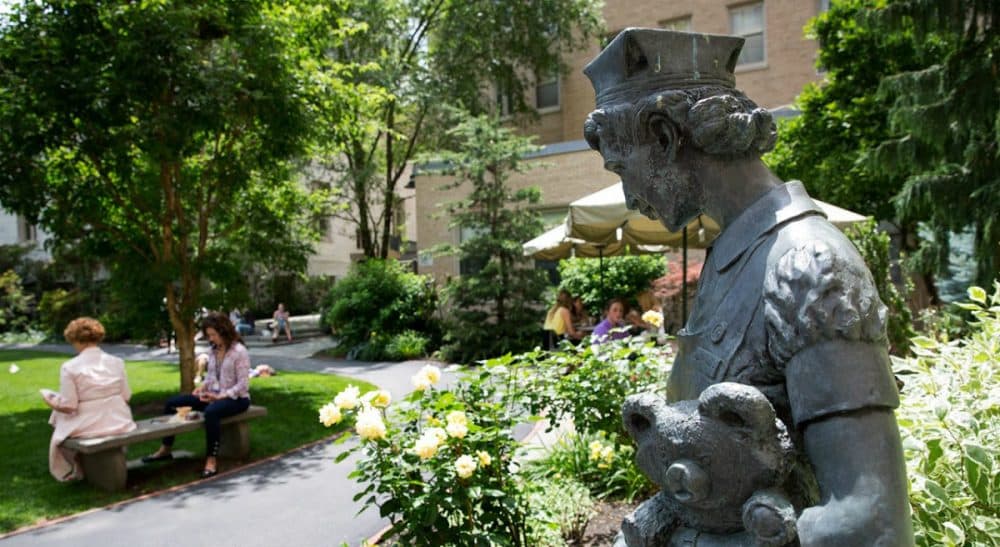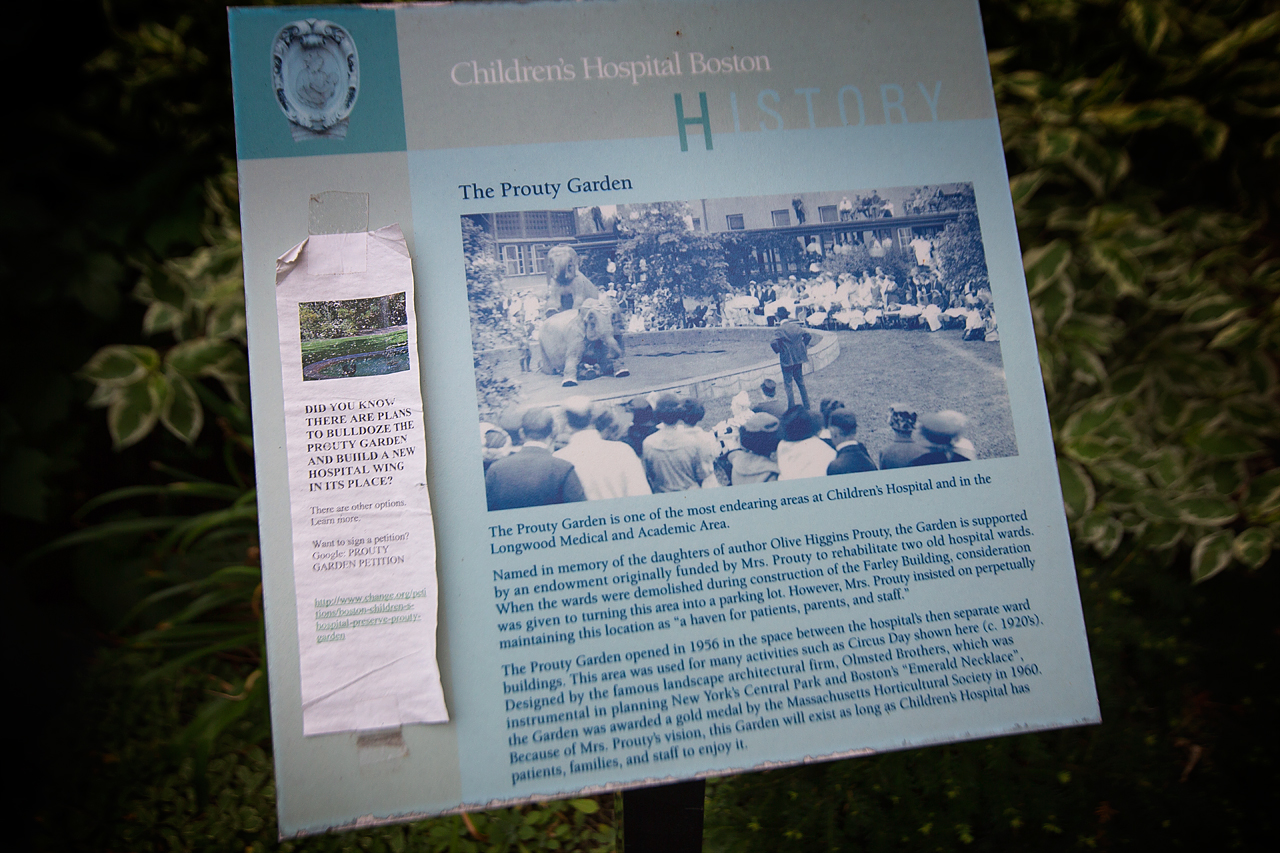Advertisement
Saving Prouty Means Saving Children's Lives

At its heart, Boston Children’s Hospital has always been a place of healing. All our biomedical expertise, cutting-edge technology and cost-effective delivery support our central commitment to caring for the whole child and whole family — in body, mind and spirit.
For 25 years, I’ve been honored to serve as a pediatrician at Children’s, working elbow-to-elbow with the best clinicians, researchers and staff in the world. We touch the young lives we serve, not only with our technical skill, but with our compassion — a smile from a man pushing a broom, a nurse’s hand to hold, a quiet moment shared with a busy doctor.
Although not reflected on accountants’ balance sheets, our garden is frequently what is most remembered by patients and families we have helped...
Many pediatric hospitals have up-to-date facilities, but only Children’s has a state-of-the-art healing garden. For 60 years, even before science recognized the therapeutic power of nature, the Prouty Garden has been a necessary component of our healing. Although not reflected on accountants’ balance sheets, our garden is frequently what is most remembered by patients and families we have helped, remembered for the solace and peace that was found there. In our garden, nature has comforted frightened children, calmed overwhelmed parents and restored depleted caregivers.
A sign in Prouty Garden promises it will “exist as long as Children’s Hospital has patients, families, and staff to enjoy it.” And, while this sentiment is in line with the benefactor's intent, Olive Higgins Prouty may not have known how the garden would become a truly sacred space, consecrated by young lives lost and many more reclaimed there.

I love Boston Children’s Hospital and am deeply committed to our healing mission. I find I must now show that love, as I had to show my patriotism a generation ago, by acknowledging that leadership has lost sight of our mission. They plan to spend $1.5 billion to destroy the Prouty Garden and replace it with a 12-story inpatient tower, justifying it as necessary to accommodate more patients with state-of-the-art care.
Scores of Children’s clinicians and over 15,000 patients, families, hospital staff, donors, environmentalists and community members have petitioned the hospital to save our garden. In the face of this widespread support, the hospital leadership is waging an aggressive public relations campaign that is dividing the hospital and undermining morale. There are members of the staff who oppose the hospital’s plan to expand at the expense of the Prouty Garden, but are afraid to speak up. Throughout this campaign and in its filings with the Department of Public Health, the hospital consistently states its case for constructing a new clinical building — while sidestepping the pivotal question of why it can’t be built without destroying Prouty Garden.
Advertisement
Two decades ago, I sat beneath the dawn redwood tree in Prouty Garden with an 11-year-old patient of mine, a boy named Nick, who was dying from a cancer that even back then we could cure in 95 percent of our patients. After being surrounded by bright lights, beeping machines and bustling staff for weeks, he treasured his moments in the garden, breathing the fresh air, listening to birds, watching the wind move the trees. I tried to apologize to him for our failure — the best knowledge, skill and technology in the world could not save him. Looking up through the canopy of branches into the blue sky, he said, “You know, you can’t always cure, but you can always heal.”
As physicians, we pledge the Hippocratic oath: 'First, do no harm.' To ignore substantial research evidence of the healing power of nature is bad medicine.
Like others before and after him, Nick was comforted by the peace, the variability and the implacability of nature — nature that both calmed him and took him out of this world. Our hallowed garden is a small piece of nature that could never be simulated by the artificial, sanitized green spaces the hospital has proposed as consolation prizes.
As physicians, we pledge the Hippocratic oath: “First, do no harm.” To ignore substantial research evidence of the healing power of nature is bad medicine.
Cutting down our redwood and destroying our garden, thinking that we can build something better than nature, betrays our commitment to preserving life. Once Prouty Garden is gone, it is lost forever, taking with it the memories and meaning of many lives lost and many more saved at Boston Children’s Hospital — and denying its healing to future patients.
Children’s leadership claims that our only choice is to destroy Prouty Garden to maintain first-rate pediatric care. Sacrificing nature will not sustain medical excellence — it will lower our overall quality. We need to show the innovation, compassion and courage that has made Children’s No. 1 by saving Prouty Garden, making it integral to our improvements, and celebrating its dawn redwood as the symbol of the resilience, tenacity and reverence for life of Boston Children’s Hospital, our staff, our patients and their families.
